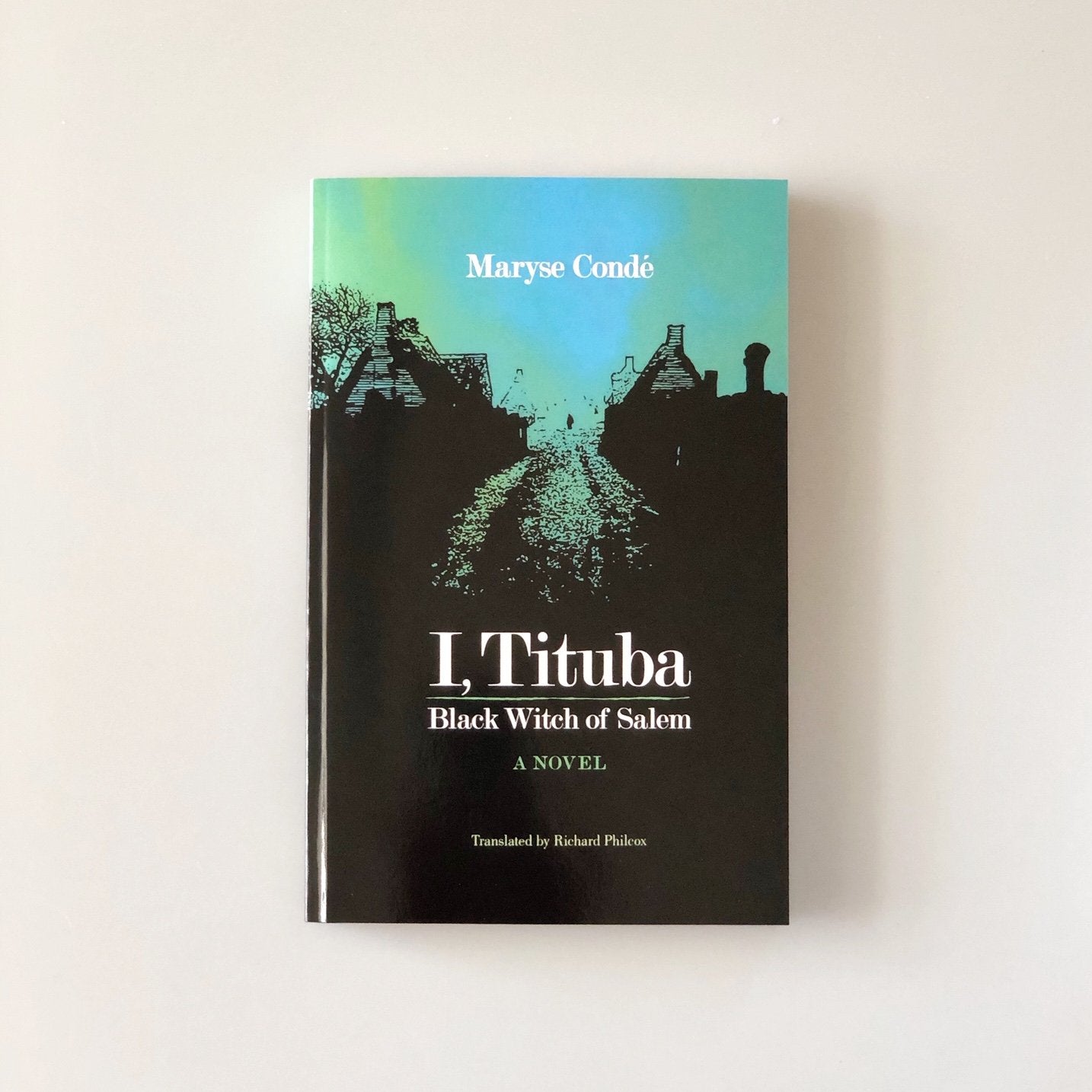Available for purchase here
Living in Salem, you'd think there was no stone left unturned about the notorious "Witch Trials" of 1692. Hundreds of books, documentaries, exhibits, tours, and marketing campaigns have told the story from seemingly every angle, from the perpetrators to the victims. But one victim in particular had a VERY different experience from her Puritan counterparts: Tituba. Tituba's story has again and again been reduced to, as Maryse Condé emphasizes in her novel, "a slave originating from the West Indies and probably practicing 'hoodoo'". Perhaps even worse are the bogus rituals that spring up in Salem alleyways every October claiming to conjure her spirit.
If Condé's take on Tituba leaves us with one certainty, it's that her ethereal form is nowhere near here.
But the certainties are plentiful, based both in Condé's scholarly research and her own relationship with Tituba's spirit. This book is the result of channeling as much as studying, by a descendant of the same land where Tituba may have begun her life. Condé explains in the dedication:
"Tituba and I lived for a year on the closest of terms. During our endless conversations she told me things she had confided to nobody else." We at HausWitch firmly believe her. This book has touched and taught each of us in significant ways, and we consider this to be *the* most important book about the Witch Trials- Arthur Miller can take a seat.
But don't just take our word for it! The foreword of "I, Tituba Black Witch Of Salem" is written by Angela Davis: scholar, speaker, and of course Black liberation legend.
An exerpt:
"Tituba looked for her story in the history of the Salem witch trials and could not find it. I have looked for my history in the story of the colonization of this continent and I have found silences, omissions, distortions, and fleeting, enigmatic insinuations. Tituba's quest for recorded evidence of her existence as a living, feeling, loving, active individual, who was as much a part of the Salem witch trials as her codefendants of European descent, leads her to a belittling, cursory allusion: 'Tituba, a slave originating from the West Indies and probably practicing 'hoodoo.'' She counters this footnote that condemns her to insignificance with a strong, self-affirming 'I, Tituba... Witch.' Maryse Condé lends her the words that assist her to tell you and me her story, speaking her life in her own voice- from the womb to the realm of the dead.
Maryse Condé's historical novel about the black witch of Salem furnishes Tituba with a social consciousness as contemporary as the motivating impulse behind the novel, which drives Condé to retrieve fragments of an intentionally ignored history and to reshape them into a coherent, meaningful story. It is the same consciousness that has motivated contemporary women of African descent- both scholars and artists- to explore the infinite possibilities of our lost history.
Tituba's voice is her own. But, of course, Condé meticulously researched this historical person, and Tituba's voice is infused with the historically complex and imaginative voice of her creator. It is therefore not rigidly anchored to the social issues of Tituba's times. The historical novel refuses to be confined within the ideological limits of the era during which it unfolds. Tituba engages in recurring meditations on her relationship- as a black woman- to feminism. In this sense, her voice can be viewed as the voice of a suppressed black feminist tradition, one that women of African descent are presently reconstituting- in fiction, criticism, history, and popular culture.
This is one possible version of Tituba, the black witch of Salem. There are those who dispute her African descent, countering that she was Indian, perhaps hoping to stir up enmity between black and Native American women as we seek to re-create our respective histories. As an African-American feminist, I offer my profound gratitude to Maryse Condé for having pursued and developed her vision of Tituba, Caribbean woman of African descent. Should a Native American Tituba be re-created, in scholarly or fictional terms, this would be true to Condé's Tituba and her revenge. For, in the final analysis, Tituba's revenge consists in reminding us all that the doors to our suppressed cultural histories are still ajar. If we are courageous enough to peer through the narrow openings, we will discover our fears, our rage, our hopes, and our roots. And sometimes there is magic behind those doors, sparkling clues about the possibilities ahead."
-Angela Y. Davis
Available for purchase here





